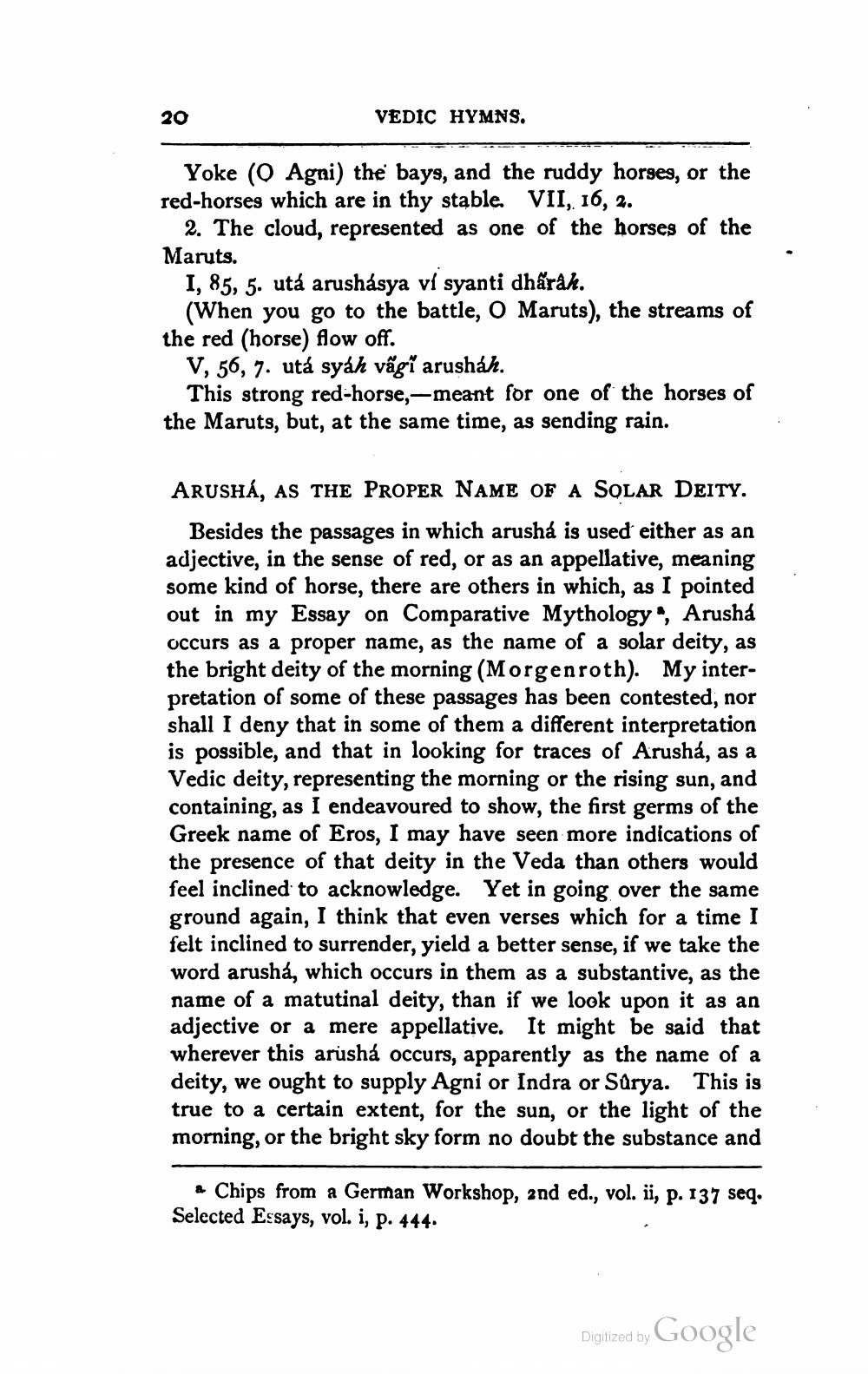________________
20
VEDIC HYMNS.
Yoke (О Agni) the bays, and the ruddy horses, or the red-horses which are in thy stable. VII, 16, 2.
2. The cloud, represented as one of the horses of the Maruts.
I, 85, 5. utá arushásya vi syanti dháråk.
(When you go to the battle, O Maruts), the streams of the red (horse) flow off.
V, 56, 7. utá syah vấgi arusháh.
This strong red-horse, --meant for one of the horses of the Maruts, but, at the same time, as sending rain.
ARUSHA, AS THE PROPER NAME OF A SOLAR DEITY.
Besides the passages in which arusha is used either as an adjective, in the sense of red, or as an appellative, meaning some kind of horse, there are others in which, as I pointed out in my Essay on Comparative Mythology“, Arusha occurs as a proper name, as the name of a solar deity, as the bright deity of the morning (Morgenroth). My interpretation of some of these passages has been contested, nor shall I deny that in some of them a different interpretation is possible, and that in looking for traces of Arusha, as a Vedic deity, representing the morning or the rising sun, and containing, as I endeavoured to show, the first germs of the Greek name of Eros, I may have seen more indications of the presence of that deity in the Veda than others would feel inclined to acknowledge. Yet in going over the same ground again, I think that even verses which for a time I felt inclined to surrender, yield a better sense, if we take the word arusha, which occurs in them as a substantive, as the name of a matutinal deity, than if we look upon it as an adjective or a mere appellative. It might be said that wherever this arusha occurs, apparently as the name of a deity, we ought to supply Agni or Indra or Surya. This is true to a certain extent, for the sun, or the light of the morning, or the bright sky form no doubt the substance and
& Chips from a German Workshop, 2nd ed., vol. ii, p. 137 seq. Selected Essays, vol. i, p. 444.
Digitized by Google




